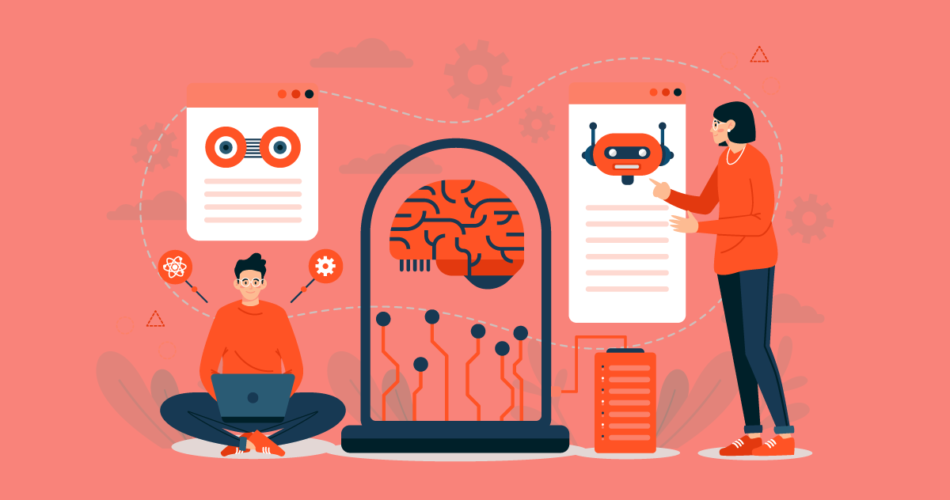Hello everyone! For my blog post this week, I wanted to write about something I thought about after our class last week: how can AI affect how we learn and speak foreign languages? Today, many online resources like Duolingo (one of my favorite apps in middle school for learning Spanish) and Babbel help us learn foreign languages on our devices. While these resources are great, they have many limitations. One drawback is that these platforms don’t provide users with many opportunities to improve their conversation skills in their chosen language. In addition to foreign language teaching, machine translation systems have been around for some time and help us understand the written elements of a foreign language. Machine translation tools like Google Translate can translate blocks of text to the desired language. However, I am sure many of us have used Google Translate in our foreign language classes and understand its inability to provide precise translations. For example, when I experimented with Google Translate in my Spanish courses, the Spanish translation would have a completely different meaning from my English input because some words in Spanish have multiple meanings. In this blog, I will discuss how AI can transform foreign language teaching, improve the accuracy of machine translation tools, and impact our need to learn a foreign language in the future.

AI and Foreign Language Teaching
Many schools are already using AI to score foreign language essays as this technology provides accurate scoring and feedback in seconds. Recently, AI technology has gained the ability to accurately analyze speech in a wide variety of languages and provide elaborate feedback on grammar, pronunciation, and vocabulary. For example, Emmersion.ai is a language assessment platform that helps companies hire top bilingual communicators. The tool works by generating a sentence or paragraph in a foreign language the user must repeat and providing immediate feedback without the presence of a foreign language teacher. The scoring system works by using phonemes, or sound units that make each word unique, and scoring the user from 0 to 100 on how close their phonemes are to the correct sounds of a given word. This system has the potential to disrupt online foreign language learning because users can receive immediate feedback with an in-depth analysis of their speaking performance. As this AI scoring system becomes more accurate, other online language learning platforms like Duolingo will have to address their lack of features that focus on improving conversation skills in selected languages. I have seen articles and posts on Twitter that mention how AI has the potential to wipe out foreign language classes in school. While I don’t think AI will replace foreign language courses since these classes have important cultural components, I believe this technology could help score assignments with speaking portions. As these AI translation systems continue to improve and more AI-powered translation products are available, it could become unnecessary to learn foreign languages as we can talk with people from anywhere in the world without having a language barrier.
New AI Technology Improves Machine Translation Accuracy
As AI technology advances, it will address many of the shortcomings of the translation tools we have today. This technology provides more accurate translation results as these models are trained on significant amounts of data. In addition, AI is making strides in its ability to provide speech-to-speech translation in real-time. For example, Meta created the first AI speech-to-speech translation system for Hokkien, a language in China that is only spoken and has no writing elements. The video below is a demonstration by Mark Zuckerberg and a Meta researcher showing how this AI system can translate Hokkien to English and vice versa. The company will be looking to add many more languages to its system in the near future. The system’s ability to completely change how we interact with people online from all over the world is why I find the speech-to-speech translation to be the most fascinating part of how AI can impact how we learn and use foreign languages!
Conclusion
In the future, AI technology will continue to improve speech-to-speech translation and allow us to communicate with others in different languages in person. A few weeks ago, the company Timekelle announced its release of an in-ear device that can translate languages in real-time. This innovation opens the door for humans to have the ability to hold face-to-face conversations with people from around the world without language barriers. Imagine being able to travel anywhere in the world and communicate with the locals who speak a different language! As these AI translation systems become faster and more accurate, I think it will be possible to communicate with anyone in person or online without learning their language. I am very excited to see how this technology continues to develop and will be interested in using AI-powered translation devices if they are released in the future!
As AI technology advances, do you think we will still have to learn foreign languages to communicate effectively with others without having a language barrier?
Thank you for reading!
Spencer Myers